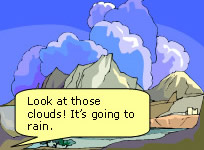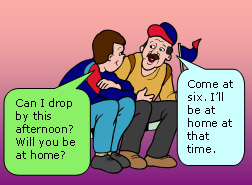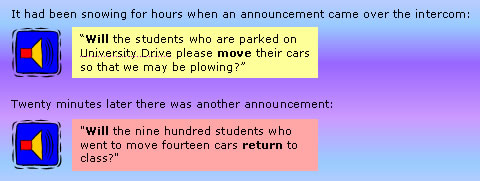there are some very clear basic distinctions:
reality - such as present evidence, fixed plans, personal arrangements, intentions or decisions that have already been taken, or fixed schedules - we use the structures of the present tense: present progressive or simple and the form
"be going to".
information about the future without present reality, announce a decision as we make it,
or give promises, we use the structures
with the verb "will".
| NEUTRAL ATTITUDE | STRONG ATTITUDE | WEAK ATTITUDE |
|---|---|---|
The
speaker reports future events impersonally, renouncing personal beliefs,
calculations, expectations, etc. |
The speaker is certain
about what is going to happen because there is some present evidence
for it. |
There is always some uncertainty about what the speaker
is saying, because it is not based on obvious evidence. |
 |
||









